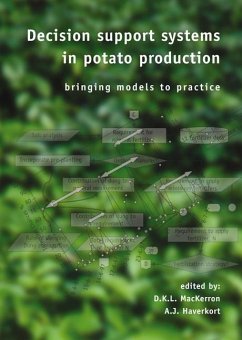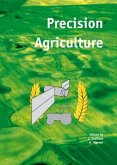Models of crop growth and development were conceived originally for scientific purposes. Typically, they describe the mechanisms of crop production, development from emergence through tuber initiation to senescence determined by temperature and day-length. Growth is driven by solar radiation intercepted by the foliage. Yields are enhanced by the availability of water and nutrients and may be reduced by pests, diseases and weeds. The scientific models describing the processes involved are leaving the research institutes and increasingly are becoming a means of knowledge transfer for students, and most importantly, to growers and their intermediaries such as extensionists and consultants. Many decision support systems (DSS) have a mechanistic model core that assures their robustness and reliability. This book gives an overview of model-based DSS in potato production. Decision support systems are used by the processing industry to guide them to promising production areas and by breeders to identify the ideal genotype for such environments. Consultants and soil laboratories use them as well as farmers to optimize the use of nitrogen, water and chemicals to control insects, nematodes, late blight and weeds. The systems, making use of models and sensing techniques, improve yield and quality while allowing their users to improve the efficiency of use of resources, thus generating positive effects for profits and for the environment. The book also gives examples of new introductions of DSS and farmers responses. The book is intended for researchers wanting to bring their models to practice, students to learn bout DSS, intermediaries and growers to improve the performance of the potato industry or of other commodities for which potato serves as an example.
Hinweis: Dieser Artikel kann nur an eine deutsche Lieferadresse ausgeliefert werden.
Hinweis: Dieser Artikel kann nur an eine deutsche Lieferadresse ausgeliefert werden.








